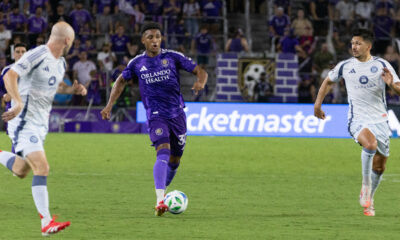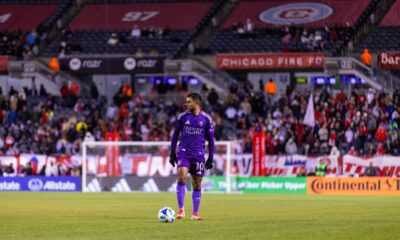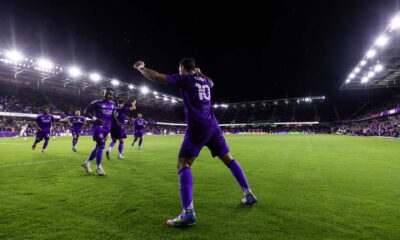Orlando City
Orlando City vs. Charlotte FC: Preview, How to Watch, TV Info, Live Stream, Lineups, Match Thread, and More
Orlando City opens the postseason looking for a way past Charlotte’s stingy defense.
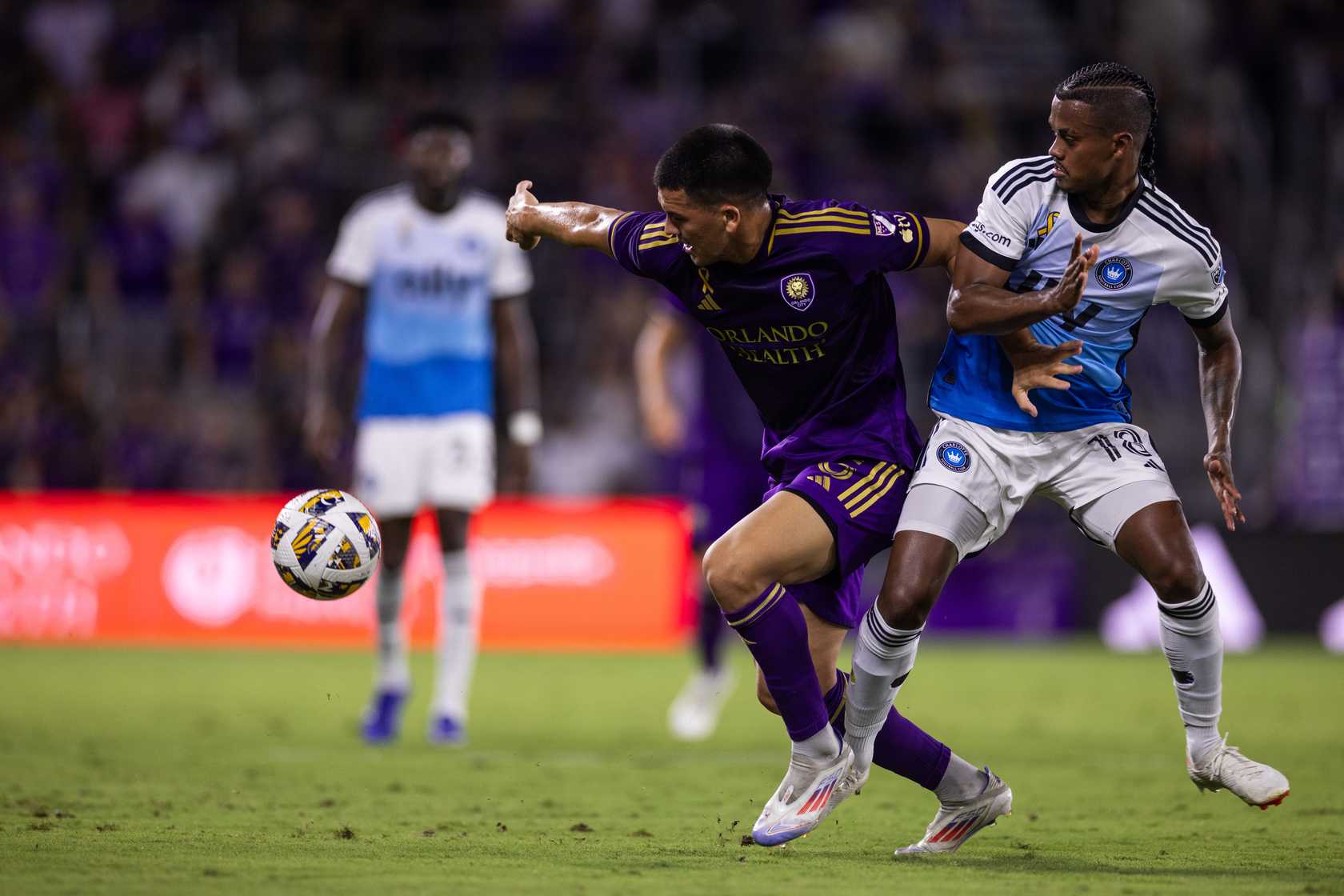
Welcome to your match preview and live thread for a Sunday night playoff matchup between Orlando City and Charlotte FC at Inter&Co Stadium (7:30 p.m., FS1, MLS Season Pass on Apple TV). This is the first time the teams have met in the postseason as they open a best-of-three, first-round series.
Here’s what you need to know ahead of the match.
History
The Lions are 3-1-2 in the regular-season series and 3-2-2 in all competitions against Charlotte. Orlando City is 2-1-0 at home in the regular season. Every game between the two teams (aside from the draws) had been decided by a single goal until the most recent clash, when the teams met a month ago on Sept. 18 in Orlando. The Lions got second-half goals from Facundo Torres and Duncan McGuire to win 2-0, claiming the first multiple-goal win in the series.
The teams also met on June 19 at Bank of America Stadium in Charlotte and played to a 2-2 draw. The hosts struck first with an early Kerwin Vargas goal and the Lions pulled one back through McGuire in the second half. But despite Charlotte going down a man on Scott Arfield’s red card, Brandt Bronico restored the hosts’ lead shortly after McGuire’s strike. Torres struck back moments later but the Lions could not find a winner on the road.
The previous match was also a draw at Bank of America Stadium, finishing 1-1 on Aug. 30, 2023. Enzo Copetti’s late penalty appeared to wrap things up for the hosts on a rainy night in Charlotte, but Martin Ojeda’s seeing-eye set piece equalized just before stoppage time as the teams split the points.
Charlotte claimed a 1-0 “home” victory in U.S. Open Cup play on May 9 of last year. That game took place at Mecklenburg County Sportsplex in Matthews, NC, rather than at the club’s regular stadium. The first matchup of the 2023 season didn’t go any better for Orlando City, finishing as a 2-1 Charlotte win at Exploria Stadium on March 18. Copetti and Vargas put Charlotte up 2-0 by halftime. Ojeda pulled one back, but the Lions were wasteful in front of goal and couldn’t pull level.
The teams met at Bank of America Stadium on Aug. 21, 2022. After a scoreless first half, Ercan Kara put the Lions ahead on the road, only to see McKinze Gaines equalize just four minutes later. Tesho Akindele’s late goal lifted Orlando to a 2-1 victory.
Orlando City won the first-ever meeting between the sides on April 30, 2022 at Exploria Stadium. Ruan scored the opening goal and set up Torres on the counter for the second as the Lions took a 2-0 lead into the locker room. Christian Fuchs scored from the spot after Rodrigo Schlegel was called for a foul in the box in the second half, but that was as close as Charlotte got in what was ultimately a 2-1 Orlando victory.
Overview
These teams were separated by only one point in the standings after the 34-game regular season. The Lions (15-12-7, 52 points) needed their three points this season against Charlotte (14-11-9, 51 points) to finish in the home playoff places for the first round.
Orlando City enters tonight’s match having lost 2-1 to Atlanta United at home on Oct. 19 in the season finale. The Lions staked the visitors to an early 2-0 lead and outplayed them the rest of the way, with Ojeda scoring just before the break. However, Orlando could not find an equalizer, backing into the fourth spot in the Eastern Conference due to New York City FC’s loss at CF Montreal. That game also allowed Charlotte to leapfrog NYCFC into the fifth spot, producing tonight’s matchup. The Lions finished 7-6-4 at home in the regular season, but considering the team’s terrible start to the season at Inter&Co Stadium, that was an accomplishment. Orlando had a seven-game (6-0-1) home unbeaten run snapped on Decision Day, as well as a 10-game unbeaten run in all competitions (7-0-3).
Charlotte hasn’t lost since dropping that Sept. 18 match in Orlando, going 4-0-1, with the only draw coming on the road against Inter Miami, 1-1. Three of the other four games were shutout victories, including the last two. Charlotte’s 3-0 win at D.C. United on Decision Day pushed the team ahead of NYCFC and into the fifth spot.
Although Orlando scored twice in each meeting with Charlotte this season, tonight’s visitors have the best defensive record in the Eastern Conference and have the second-best defense in MLS, allowing just 37 goals in 34 games. Charlotte went just 5-8-4 on the road in 2024, but has been good of late, with a win and a draw in its last two away from home. Despite setting a club record for goals in 2024, the Lions have never scored more than one goal in a playoff game, and tonight’s opponents won’t make things any easier.
Orlando City will need to be patient but also try to build a volume of shots against Charlotte’s stout defense, led by goalkeeper Kristijan Kahlina, who posted 119 saves on the season and tied for the league lead in minutes played (3,060) and a strong back line that includes U.S. international Tim Ream. The key to beating Charlotte is to get some goals on the board, as the visitors’ offense has found the net just 46 times this season — tied for 10th in the Eastern Conference — although it has scored 14 during its current unbeaten run and has been held under two goals just once since getting shut out in Orlando in September.
“We are so proud to again be at this stage of the playoffs, which is the most important part of the season,” Orlando City Head Coach Oscar Pareja said ahead of the game. “For us, it’s just an opportunity one more time, just to get the best prize here, to our club, to our city, and that’s what we are focused on. We are very optimistic and ready to compete. Regarding our match, it’s playoff time. The playoffs are a different tournament. It’s a short tournament when there is no tomorrow, you have to be ready that day, and we are preparing mentally just to face that challenge. We are really proud to represent our club again in the playoffs.”
The Lions will be without Mason Stajduhar (lower leg). Charlotte will be without Jahlane Forbes (hip), while Nikola Petković (knee) is questionable.
Match Content
- Our Ben Miller wrote about Orlando’s need to find offense in the postseason.
- Our most recent epsidode of the PawedCast includes our key matchups and score predictions for today’s match, as well as a preview of the game.
- Our David Rohe presented his three keys to victory for Orlando City in this match.
Official Lineups
Orlando City (4-2-3-1)
Goalkeeper: Pedro Gallese.
Defenders: Rafael Santos, Robin Jansson, Rodrigo Schlegel, Dagur Dan Thorhallsson.
Defensive Midfielders: Cesar Araujo, Wilder Cartagena.
Attacking Midfielders: Ivan Angulo, Martin Ojeda, Facundo Torres.
Forwards: Ramiro Enrique.
Bench: Javier Otero, Kyle Smith, Michael Halliday, David Brekalo, Felipe, Jeorgio Kocevski, Nico Lodeiro, Luis Muriel, Duncan McGuire.
Charlotte FC (4-3-3)
Goalkeeper: Kristijan Kahlina.
Defenders: Tim Ream, Andrew Privett, Adilson Malanda, Nathan Byrne.
Midfielders: Brandt Bronico, Ashley Westwood, Junior Urso.
Forwards: Liel Abada, Karol Swiderski, Pep Biel.
Bench: David Bingham, Jere Uronen, Jaylin Lindsey, Bill Tuiloma, Djibril Diani, Iuri Tavares, Jamie Paterson, Kerwin Vargas, Patrick Agyemang.
Referees
REF: Drew Fischer.
AR1: Micheal Barwegen.
AR2: Lyes Arfa.
4TH: Rosendo Mendoza.
VAR: Michael Radchuk.
AVAR: TJ Zablocki.
How to Watch
Match Time: 7:30 p.m.
Venue: Inter&Co Stadium — Orlando
TV/Live Stream: FS1, MLS Season Pass on Apple TV (Free).
Radio: Real Radio 104.1 FM (English), Mega 97.1 FM (Spanish).
Twitter: For rapid reaction and live updates, follow along at @TheManeLand, as well as Orlando City’s official Twitter feed (@OrlandoCitySC).
Enjoy the match. Go City!
Orlando City
Orlando City vs. Chicago Fire: Final Score 3-1 as Dreadful Defending Dooms Lions
A brutal first half sent the Lions to their second straight loss and just their second home defeat of the season.
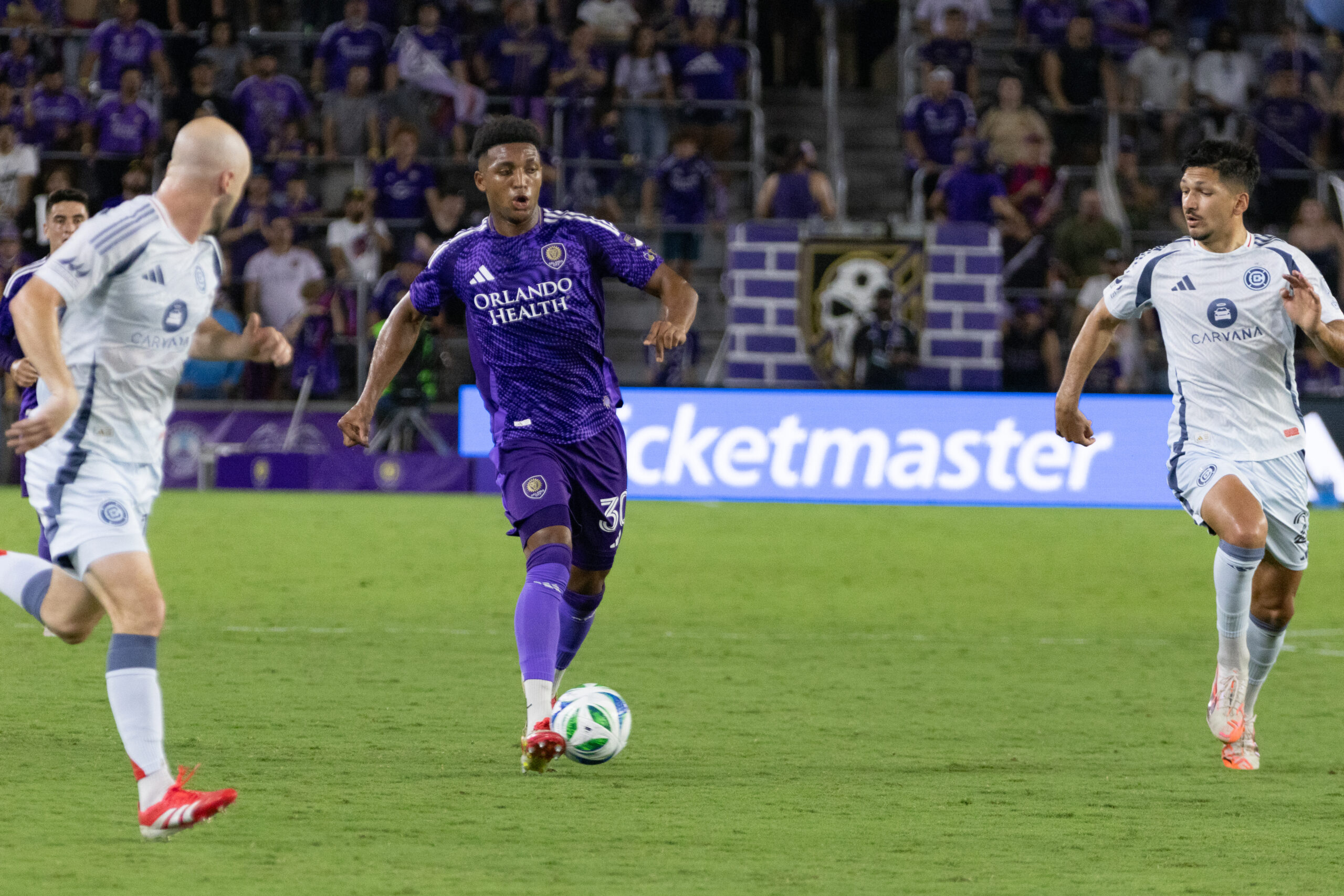
Orlando City played a terrible first half and could not recover in a 3-1 loss to the Chicago Fire at Inter&Co Stadium. After 12 games without a loss, the Lions (7-4-6, 27 points) fell for the second straight game and just the second time at home all season. Chicago (6-5-4, 22 points) didn’t have to work terribly hard for its goals on this night as the first one went through Pedro Gallese’s hands, and the other two were wide-open looks for Fire leading scorer Hugo Cuypers, who finished both with no trouble.
After falling behind 3-0 in the first half, Alex Freeman got the Lions on the board, but other than that there was no final product on 28 other shot attempts, with only five others sent on target.
The Lions played this match without Head Coach Oscar Pareja, who was sent off in Atlanta Wednesday and had his appeal denied. Pareja served his suspension in this match, leaving his first assistant in charge on the touchline.
“The game, I think we lost in one minute,” Orlando City Assistant Coach Diego Torres said after the match. “In one minute we received two goals. But the energy with the players is amazing.”
Torres’ lineup included Gallese in goal behind the usual back line of David Brekalo, Robin Jansson, Rodrigo Schlegel, and Freeman. With Cesar Araujo suspended, Joran Gerbet joined Eduard Atuesta in central midfield with attacking midfielders Ivan Angulo and Marco Pasalic. Martin Ojeda and Luis Muriel operated up top as the forwards.
Orlando looked every inch the team playing on short rest against Chicago, which had full rest after not having a midweek game. The Lions were lethargic early and dug a deep hole in the first half with poor attention to detail in defending the final third. The opening goal was a terrible one for Gallese to concede, and the back line did far too little to prevent two more that the visitors tacked on to build a cushion.
The Lions never quit trying to fight their way back into the match, but the hole was far too deep for a shattered group trying to break down a defensively organized team protecting a lead. Had Orlando been able to find a second goal to put pressure on the Fire, the hill might not have proven too difficult to climb, but as it was, Chicago didn’t have to take any real risks after the 32nd minute of the game.
The Fire scored on the first shot of the match, but it wasn’t a great shot, and it was a goal that Gallese will want back, because it was right down the middle and he made a mess of it. Philip Zinckernagel’s drive from outside the box was above Gallese, who let it slip right through his hands and in for the worst goal conceded this season. Zinckernagel hardly celebrated, knowing he’d caught a huge break. The Fire led 1-0 just five minutes into the game and the air went out of the stadium.
“It’s normal (to make) one mistake, one player, but when it’s the goalkeeper, it’s more hard,” Torres said.
Orlando finally attempted a shot in the 16th minute when Angulo cut left to right outside the area, but the Colombian sent his floater well over the target.
The Fire nearly doubled their lead a minute later. Chicago cycled the ball right to left to Jonathan Bamba. Gerbet was slow to close down and Bamba’s shot from the left didn’t miss the right post by much.
Ojeda found some space for Orlando’s first truly dangerous opportunity in the 21st minute. Finding an opening, Ojeda blasted a shot from about 25 yards out. Fire goalkeeper Chris Brady fought it off with an important save.
The Lions tried to get back in the game and held a bit of possession, forcing Chicago into a couple of bookings. Muriel fired wide off a good play by Atuesta to bring the attack into the box in the 29th minute.
Two minutes later, Cuypers doubled the lead. Zinckernagel sent a cross in front to a wide-open Cuypers who had drifted away from Schlegel. The Argentine was caught ball watching as the Fire’s leading scorer pushed the game to 2-0 in the 31st minute.
The restless crowd was still grumbling about the second goal when Cuypers made it 3-0 less than a minute later. Schlegel seemed to take too long to recognize the danger, and when the Argentine tried to recover, Cuypers roasted him to get inside alone and fired home.
“Distractions. But the responsibility is mine, because the defender is discoordinated in these two situations,” Torres said of the breakdowns that led to the two Cuypers goals.
To their credit, the Lions kept fighting to get back into the game, winning a series of corners. Orlando made one pay off with Ojeda sending in a good ball for Freeman in the 40th minute. The young fullback didn’t get a lot of power on his header, but it deflected off of Romingue Kouame to catch Brady wrong-footed. Freeman’s fourth goal of the year made it 3-1.
“I think we went over that set piece a lot during training in the past week,” Freeman said. “It was just me and Rodri (Schlegel) trying to decide who goes first and goes second. Tincho played a wonderful ball and Rodri kind of blocked the guy for me, and then I kind of just headed it and got a little deflection, and it went in. Obviously I was hoping that was going to be the way that we (could) come back.”
Orlando had a couple of shouts for a penalty late, but there wasn’t anything in them. However, Pasalic had a good opportunity to make it 3-2 in the 44th minute on a great hustle play from Angulo, who tracked deep into his own end to defend and then blasted down the field to keep a ball in play at the end line, backheeling it to Muriel, who dropped it to Pasalic. The Croatian had space but sizzled his shot just over the bar.
Neither side did much in more than five minutes of stoppage time and Orlando was looking up at a two-goal deficit at the break.
Possession was split right down the middle in the first half. Orlando City held the advantage in shots (16-6), corners (5-0), and passing accuracy (88.6%-84%). Chicago put more shots on target (4-3).
“We came out too slow, and I feel like as a team, we wanted to start better and perform better,” Freeman said. “But in the second half, we kind of got our stuff together, but we weren’t able to get the goals that we wanted, and we ended up losing.”
Ramiro Enrique subbed on for Angulo at the break, although Muriel looked the most leggy of the Orlando attackers on this night.
The Lions were fortunate that a wayward pass from the right didn’t find two free Fire runners in the box shortly after the restart or it surely would have been 4-1 just moments after the restart.
The Lions continued to win corners early in the second half. The ball fell in the midst of all the bodies a couple of times but Orlando couldn’t find the handle. The closest the Lions came to finding a finish was a Brekalo shot that was blocked out front in the 51st minute. A minute later, Pasalic fired from outside the area on a recycle but Brady tipped the dipping effort over the bar. Pasalic fired again in the 55th minute from the right side, sending his shot through traffic but just wide of the left post.
Chicago nearly put the game to rest in the 57th minute when Andrew Gutman fired off the left post. The rebound came out of the box to Bamba, who fired well over the bar.
The Fire handed Orlando a dangerous free kick in the 58th minute by fouling Ojeda just outside the area on the left. Muriel took the set piece but hit the wall and popped up for Brady to gather.
Enrique’s first sight of goal came in the 62nd minute, but he had to regather after Christopher Cupps put a foot in. By the time Enrique fired, Brady was in position and made a good save from point-blank range. Three minutes later, the Lions came within inches of pulling to within a goal when Muriel fired from outside the box, crashing his effort off the crossbar in the 65th minute.
Orlando kept coming but could not find the quality on the last touch. Freeman headed over the bar in the 70th minute on the recycle of a set piece. Enrique then tried to stab home a great ball from Muriel in the 75th minute, but Brady made a terrific save. Two minutes later, Muriel tried to head it toward the back post on a set piece but it skipped wide. Enrique then got under a header in the 79th as the missed opportunities continued.
There were no major chances for Orlando after that, although second-half sub Dagur Dan Thorhallsson made a terrific effort to steal the ball and start an attack in the fourth minute of stoppage time. In a microcosm of the night, Enrique finished the play by firing over the bar and was offside on the play anyway.
The Lions were spared further blushes deep in stoppage time when Maren Haile-Selassie missed wide of the right post in transition when the Lions were caught out. The whistle finally put a mercy killing to the proceedings and the Lions were deservedly on the wrong side of the scoreline.
Orlando City finished with the advantage in possession (54.5%-45.5%), shots (29-10), shots on target (6-4), corners (13-1), and passing accuracy (89%-83.5%).
“I feel like after the game, we were all quiet. I mean, it’s not how we wanted to go to the break,” Freeman said. “I mean, it’s our home turf. This is where we’re supposed to win. We’re supposed to win for our fans, so I think that after the game all of us were disappointed in ourselves, but I think everybody shouldn’t be disappointed, we should be happy what we’ve done in the past month.”
“We had many chances. It was tough. The goalie made many good saves,” Enrique said. “We gave it our all, but at the end of the day, we leave disappointed with that result.”
The Lions finally get to rest, as Orlando City will not play again until June 14 at the Colorado Rapids.
Orlando City
Orlando City vs. Chicago Fire: Preview, How to Watch, TV Info, Live Stream, Lineups, Match Thread, and More
The Lions return home looking to bounce back from throwing points away late in Atlanta in the midweek.
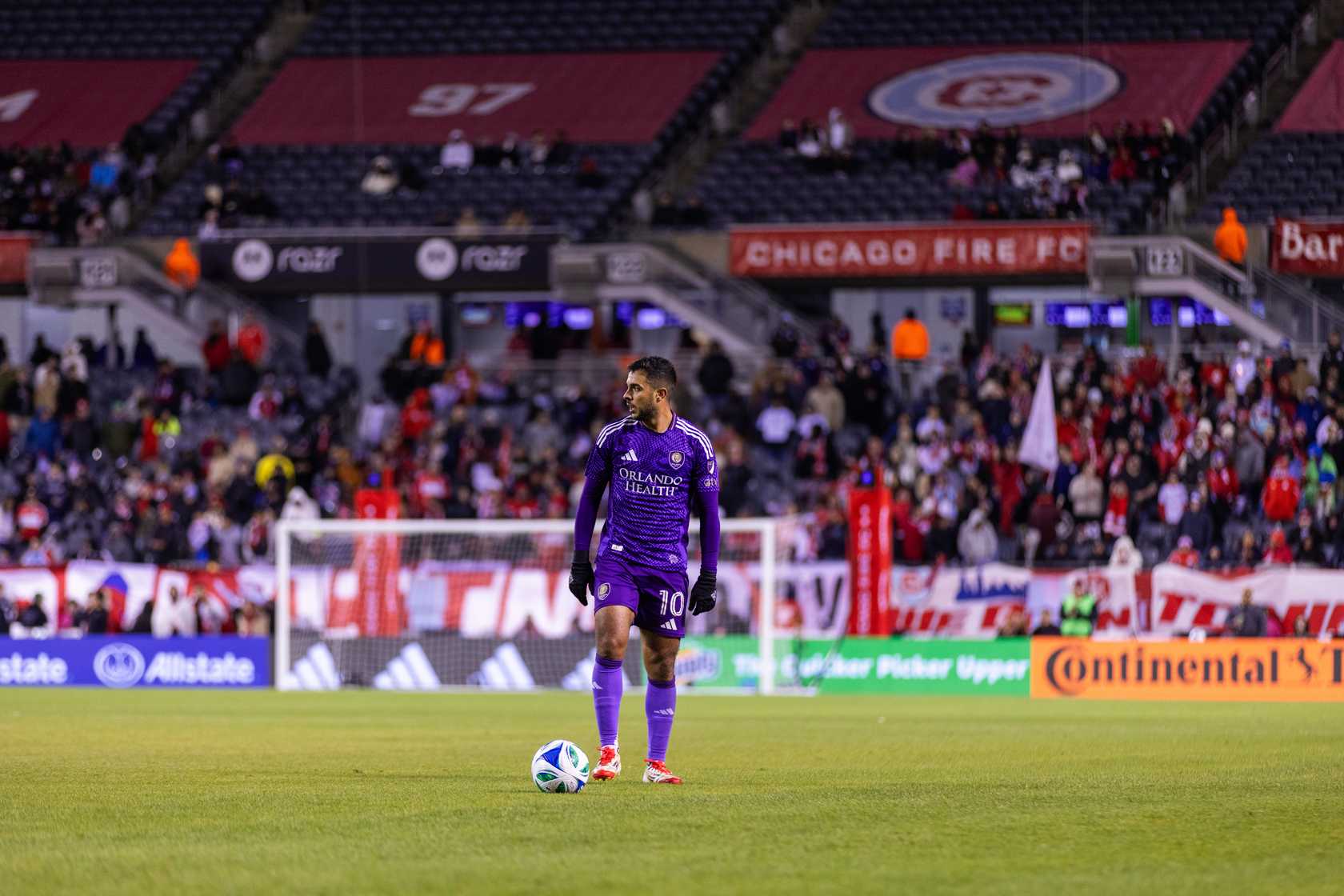
Welcome to your match thread and preview for a Saturday night matchup between Orlando City (7-3-6, 27 points) and the Chicago Fire (5-5-4, 19 points) at Inter&Co Stadium (7:30 p.m., MLS Season Pass on Apple TV). This is the second and final scheduled meeting between the Eastern Conference rivals in 2025, closing the season series.
Here’s what you need to know about the match.
History
The Lions are 8-5-8 in 21 MLS meetings with the Fire and 8-6-8 in all competitions. Orlando City is 5-2-3 against the Fire at home in the regular season. The teams met 28 days ago, kicking off a busy May against each other at Soldier Field on May 3. Despite Fire goalkeeper Chris Brady getting sent off before halftime for fouling Duncan McGuire and denying him a goal-scoring opportunity, the teams played to a 0-0 draw, as Orlando City simply couldn’t find any precision in front of goal.
These two teams last met in Orlando on June 22, 2024, with the Lions capturing a 4-2 home victory. Facundo Torres scored a brace, with Luis Muriel (from the penalty spot) and Ivan Angulo adding goals to offset a penalty by Maren Haile-Selassie (after a Rodrigo Schlegel handball in the box) and Hugo Cuypers.
The two sides clashed at Soldier Field just a few weeks prior to that on May 29, playing to a 1-1 draw. Torres opened the scoring early with a scrappy goal in traffic, and the Lions should have had a penalty late in the first half when Angulo was clipped while in alone on a goal after rounding the goalkeeper, but the video assistant referee did not overturn the no-call on the field, and referee Malik Badawi did not look at the play himself. The Fire tied the match in the final 20 minutes on a Cuypers goal.
The Lions swept the two-game season series in 2023 by identical 3-1 scorelines. On Aug. 21, Orlando City got goals from Wilder Cartagena, Angulo, and Torres (from the penalty spot) to overcome a 1-0 deficit supplied by Mauricio Pineda, winning 3-1 on the road.
When the teams met in Orlando, the Lions rode a Torres brace to a 3-1 win on July 1. Xherdan Shaqiri pulled a goal back from the penalty spot after a Kyle Smith foul in the box against Brian Gutierrez, but Ramiro Enrique added an insurance goal.
Orlando City claimed a 1-0 victory at Exploria Stadium on April 9, 2022 on Ercan Kara’s first MLS goal. The two sides met at Soldier Field just over a month prior to that match and played, officially, to a 0-0 draw on March 5. The game is another Orlando City match that will live in infamy due to the Professional Referee Organization’s statement after the game that Junior Urso’s goal should not have been overturned upon video review by Ismir Pekmic due to Kara not having clearly and obviously handled the ball in the buildup in any of the available replay angles. Alas…
The teams met in Orlando on Aug. 21, 2021, with a second-half Benji Michel strike lifting the Lions to a 1-0 victory. Tesho Akindele set up the play by forcing a turnover. In that year’s meeting at Soldier Field, the Fire got the better of the Lions to the tune of 3-1 on July 7. Andres Perea scored his first career MLS goal to open the scoring, but a defensive lapse in first-half stoppage allowed Boris Sekulic to equalize just before the break. Chicago rode that momentum, adding goals by Robert Beric and Chinonso Offor.
The Lions were 0-4-4 in the eight meetings before smashing the Fire 4-1 in Orlando on Sept. 19, 2020. Orlando City withstood two Chicago penalties and saw two Fire goals overturned by video review in that rain-soaked match. (Weird things usually happen when Chicago visits Orlando.) The Lions got goals from Chris Mueller, Nani, Urso, and Michel, while Chicago had only a Beric penalty to show for an otherwise good offensive performance.
The last meeting of 2019 was the last time the Fire won on the road in the series. It was a debacle for the Lions, who lost defender Robin Jansson to a back/neck injury early and shipped a handful of goals in a 5-2 home loss in the regular-season finale. Orlando got goals from Akindele and Michel but largely played like a team that couldn’t wait to end its season. Chicago got an own goal from Orlando’s Smith and strikes from CJ Sapong, Aleksandar Katai, and Przemyslaw Frankowski (twice) in the rout.
Orlando City was seconds away from a road win on March 9, 2019 before Sapong’s free header in the 95th minute leveled things in a 1-1 draw in Chicago. Dom Dwyer scored Orlando’s goal.
In 2018, the Fire swept the season series. Orlando fell 2-1 at home on May 26, 2018, with Alan Gordon’s wondergoal breaking a 1-1 deadlock. The return leg in Chicago that September was an abysmal performance by Orlando in a 4-0 Fire victory.
Chicago went 1-0-1 in 2017, with the teams playing to a 0-0 draw on June 4, 2017, with the Lions reduced to nine men. The previous 2017 meeting was the Fire’s 4-0 beatdown of Orlando on June 24 of that year. David Accam figured in all four goals, with a hat trick and an assist on Nemanja Nikolić’s goal.
The teams split the points in 2016, drawing both meetings. Cyle Larin and Accam traded goals in a 1-1 draw in Orlando on March 11. The Fire again came from behind to draw, 2-2 in the return leg that August.
The teams met once in Orlando in 2015, with the Lions and Fire battling to a 1-1 draw. You may recall that five-hour, weather-delayed affair with Eric Gehrig’s own-goal canceling out an Accam strike. The other three meetings came in Chicago, with City winning 3-2 and 1-0 in MLS matches and falling 3-1 in U.S. Open Cup quarterfinal action.
Overview
The Lions are coming off a brutal 3-2 come-from-ahead loss at Atlanta United on Wednesday. City led 2-1 with less than a quarter of an hour to play on goals by Cesar Araujo and Enrique, when the former lost his cool and put his hand on the neck of Mateusz Klich, who had shoved him down from behind after the whistle. Araujo was immediately sent off and Klich, who should already have been on a yellow card earlier in the match, was cautioned. Atlanta used the man advantage to turn the game around, snapping the Lions’ 12-game unbeaten run.
Orlando City is 5-1-2 at home in 2025, and will need to play tonight’s match without Araujo, as well as without Oscar Pareja, who was sent off after Atlanta tied the game for leaving his penalty area. The club appealed his red card but the appeal was denied, so the head coach will not be on the touchline for tonight’s match.
Chicago has lost its last two matches in the regular season, and the Fire are playing their fourth of five consecutive matches on the road in all competitions. The last match was a 3-1 loss to New York City FC at Yankee Stadium, with the Fire seeing two men sent off, although only one of them — Gutierrez — will miss tonight’s match after Dje D’Avilla’s appeal for his second yellow card was upheld and the suspension overturned. Chicago brings a respectable 4-4-0 road record into the proceedings tonight.
Beating Chicago means trying to contain Cuypers, who paces the Fire with eight goals to go along with two assists. Midfielders Jonathan Bamba and Philip Zinckernagel both looked dynamic in the first meeting before Bamba was sacrificed for the backup goalkeeper after Brady’s red card. Zinckernagel has five goals and four assists on the season, with Bamba chipping in two goals and six assists. Orlando City will need to maintain its recent defensive form — at least when playing with 11 men — to return to the win column and close out the month strong.
“We know that Chicago Fire’s attack is very dangerous. [Hugo] Cuypers is near the top of the league in scoring, [Jonathan] Bamba is really fast, and [Philip] Zinckernagel is good on the ball,” said Orlando City Assistant Coach Diego Torres ahead of the match. “They have more players who can play the number 10 or in the midfield. Other teams have found the focus defensively when Chicago has the ball, and that’s the same for us. Their movement and tactics are very interesting, and we worked with the players to let them know that these are their tactics. Gregg [Berhalter] is a good coach in this situation [with the ball], but he’s also prepared without the ball. Their defending has a good shape and creates good ball recovery. Chicago is dangerous and playing very well without the ball in this moment. We have to be creative to score more goals than Chicago. If we have a clean sheet again, it will be even better.”
Torres will coach the team in Pareja’s absence.
The Lions will be without Araujo (suspension), Nico Rodriguez (thigh), Wilder Cartagena (Achilles), and Yutaro Tsukada (knee), while Gustavo Caraballo (lower leg) and Duncan McGuire (upper extremity) are listed as questionable.
In addition to Gutierrez, Chicago will be without Sam Rogers (torso), David Poreba (lower body), and Carlos Terán (lower body). Additionally, former Lion Chris Mueller has been away from the team for non-injury reasons following the birth of his second child. Chase Gasper (lower body) and Mauricio Pineda (lower body) are questionable.
Match Content
- The most recent epsiode of the PawedCast includes our key matchups and score predictions for tonight’s match.
- Our David Rohe provided his three keys to an Orlando City victory in tonight’s match.
Official Lineups
Orlando City (4-4-2)
Goalkeeper: Pedro Gallese.
Defenders: David Brekalo, Robin Jansson, Rodrigo Schlegel, Alex Freeman.
Midfielders: Ivan Angulo, Joran Gerbet, Eduard Atuesta, Marco Pasalic.
Forwards: Martin Ojeda, Luis Muriel.
Bench: Javier Otero, Rafael Santos, Zakaria Taifi, Kyle Smith, Thomas Williams, Dagur Dan Thorhallsson, Gustavo Caraballo, Shak Mohammed, Ramiro Enrique.
Chicago Fire (4-3-3)
Goalkeeper: Chris Brady.
Defenders: Andrew Gutman, Jack Elliott, Christopher Cupps, Jonathan Dean.
Midfielders: Mauricio Pineda, Rominigue Kouame, Sergio Oregel.
Forwards: Jonathan Bamba, Hugo Cuypers, Philip Zinckernagel.
Bench: Jeff Gal, Omar Gonzalez, Kellyn Acosta, Maren Haile-Selassie, Leonardo Barroso, Sam Williams, Dje D’Avilla, Tom Barlow, Omari Glasgow.
Referees
Ref: Ricardo Fierro.
AR1: Ian McKay.
AR2: Ben Pilgrim.
4th: Joshua Encarnacion.
VAR: Shawn Tehini.
AVAR: Craig Lowry.
How to Watch
Match Time: 7:30 p.m.
Venue: Inter&Co Stadium — Orlando.
TV/Streaming: MLS Season Pass on Apple TV.
Radio: AM 810 FOX Sports Radio Orlando (English), Mega 97.1 FM (Spanish).
Social Media: For rapid reaction and live updates, follow us on Bluesky Social at @themaneland.bsky.social or follow Orlando City’s official Twitter (@OrlandoCitySC) or Bluesky (@OrlandoCitySC) feed.
Enjoy the game. Go City!
Opinion
Predicting Orlando City’s June Results
It’s time to take a glimpse into the future and predict how Orlando City will fare during the month of June.
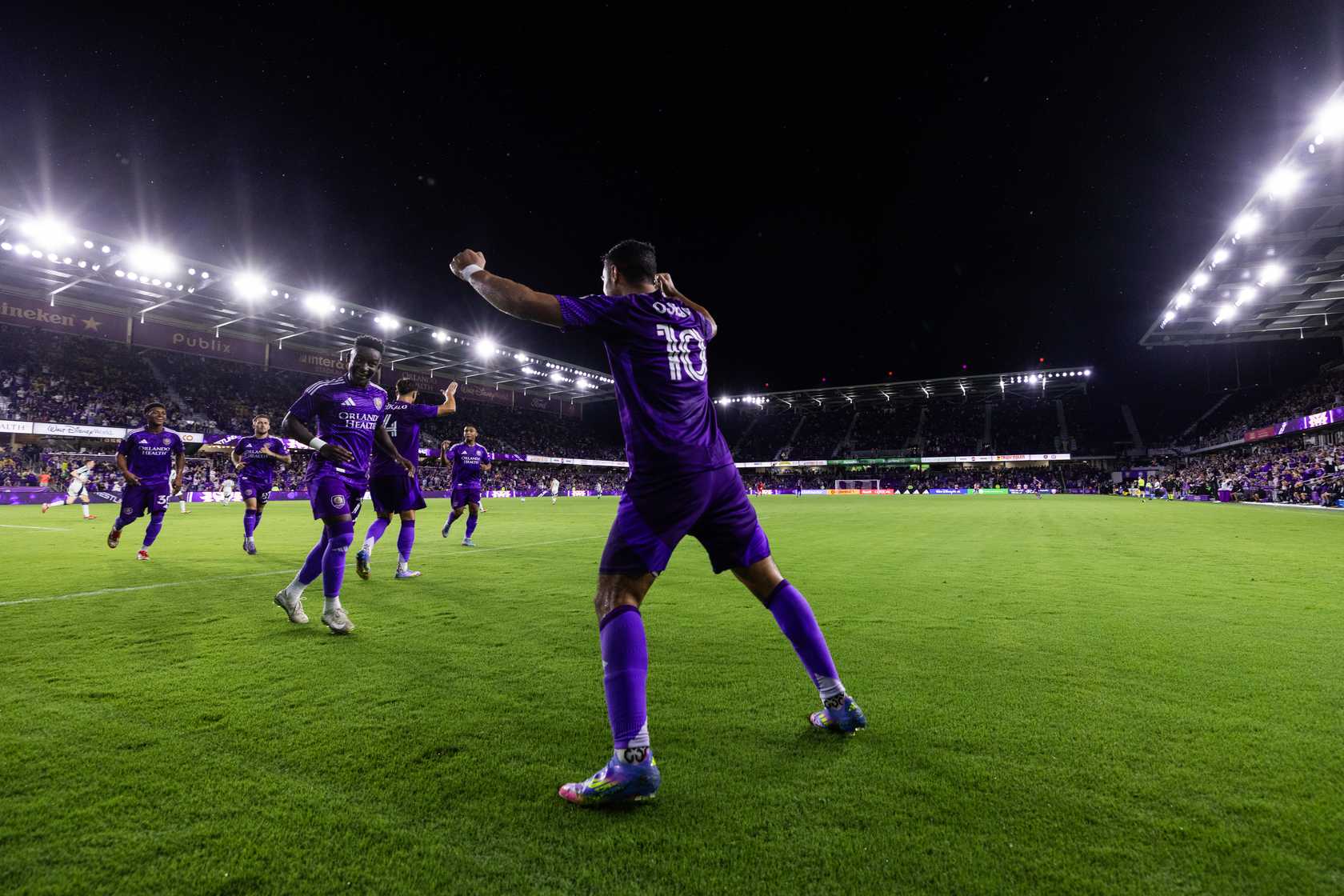
We’re almost to the end of what’s been an extremely packed month of May for Orlando City. After the conclusion of Saturday’s match against the Chicago Fire, the Lions will have played nine matches in the span of 28 days. OCSC has basically played a match every three days, which is an absurd pace. Other than two recent blemishes, Orlando has mostly handled it exceedingly well though, and June presents a much lighter schedule for our brave heroes.
The Lions play just three games next month and will have two weeks off between Saturday’s match against the Fire and their next game. Without any further ado, I will now attempt to peer into the crystal ball and predict the results of Orlando’s three games in June.
Saturday, June 14 — at Colorado Rapids
Orlando will return to action after a two-week layoff by hopping on the purple plane and flying west to take on Colorado. The Rapids are currently eighth in a crowded Western conference table with 22 points, and they are 10 points off the Vancouver Whitecaps at the top of the table. They’ve put together a pretty even season so far with a record of 6-6-4 (W-L-D). The biggest problem for Colorado has been scoring goals, as the Rapids only have 18 goals in 16 games and have been held scoreless five times in the league. They have this week off, and won’t return to action until June 7, when they host Austin FC. I give Orlando City the edge in this match, and hopefully that extra rest will help the good guys hang tough at altitude. The Lions have been defensively sound recently — when they’ve had all 11 men on the field — while also still being able to put the ball in the back of the net several times a game. Shutting down Djordje Mihailovic is going to be key, but I like Orlando’s chances given its recent form and the fact that the Lions will be well rested.
Prediction: Orlando City 3-1 Colorado Rapids.
Wednesday, June 25 — at St. Louis City
I refuse to capitalize every letter in “City” in St. Louis City’s name, because frankly I think it’s a ridiculous stylistic choice. The team also hasn’t been very good this year, so it doesn’t deserve me catering to it in that manner. St. Louis is currently 2-8-5 and only truly woeful campaigns by CF Montreal and the LA Galaxy are saving it from leading the Wooden Spoon race with 11 points. It makes Colorado look like an offensive juggernaut, as it’s only scored 11 goals in 15 games. St. Louis isn’t bad defensively, as it’s only conceded 20 goals, but it’s always going to be a struggle when you average scoring just 0.73 goals a game. Its form was enough to get Head Coach Olof Mellberg fired, and he lasted just over six months on the job. The club hasn’t won since a March 15 match against the Galaxy and has a tricky upcoming slate, with a home match against the San Jose Earthquakes on Saturday, an away game against the Portland Timbers on June 8, and a home match against the Galaxy on June 14. With a week and a half between the Colorado match and this one, I once again like Orlando City in this game. Unless St. Louis can find its shooting boots, I don’t see it offering much threat against a rested Orlando defense that has come on strong since a shaky start to the year.
Prediction: Orlando City 2-0 St. Louis City.
Saturday, June 28 — vs. FC Cincinnati
OCSC wraps up June by returning home to play one of the best teams in the Eastern Conference on short rest. It isn’t ideal, but it isn’t the worst thing in the world either. Cincy has been good this year, compiling a record of 9-4-3 and 30 points to sit second in the East. New signings Evander and Kevin Denkey have been as good as you would expect, as Evander has seven goals and five assists in 14 appearances, and Denkey has nine goals in 15 games. As a team, Cincinnati has scored 24 goals and conceded 22, so it’s been a balanced campaign to this point. It’ll be coming to the end of a stretch of three straight road games, as Cincy will be away to the New England Revolution on June 14 and then at CF Montreal on June 25, so it’ll also be traveling on short rest. That said, aside from the Philadelphia Union, Cincy is the toughest team the Lions will have faced in MLS play, and stopping both Evander and Denkey is far from an easy task. This reeks of a draw that has a couple of goals for each team, so that’s what I’ll be going with.
Prediction: Orlando City 2-2 FC Cincinnati.
There you have it. I’ve scrutinized the tea leaves and you now know what the path ahead holds for the Lions. Be sure to check back in at the end of June so you can marvel at how stunningly accurate my forecast was. Until then, feel free to either disagree or tell me how crystal clear my visions are down in the comments. Vamos Orlando!
-

 Orlando City1 week ago
Orlando City1 week agoOrlando City vs. Portland Timbers: Preview, How to Watch, TV Info, Live Stream, Lineups, Match Thread, and More
-
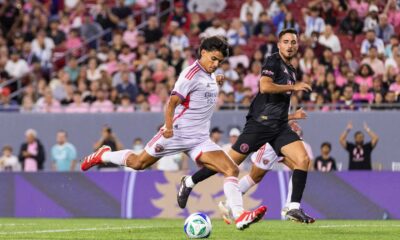
 Orlando City2 weeks ago
Orlando City2 weeks agoOrlando City SC vs. Inter Miami: Preview, How to Watch, TV Info, Live Stream, Lineups, Match Thread, and More
-
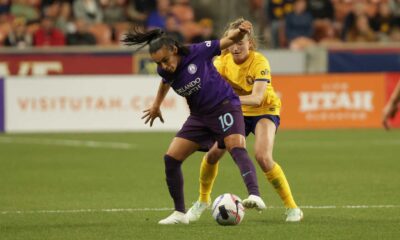
 Orlando Pride1 week ago
Orlando Pride1 week agoOrlando Pride vs. Utah Royals: Preview, How to Watch, TV Info, Live Stream, Lineups, Match Thread, and More
-
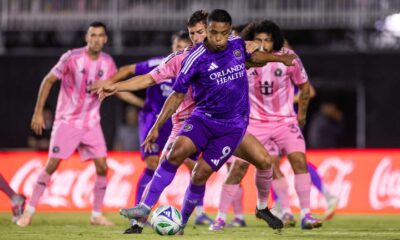
 Orlando City2 weeks ago
Orlando City2 weeks agoOrlando City vs. Inter Miami: Final Score 3-0 as Lions Romp in South Florida
-

 Orlando City1 week ago
Orlando City1 week agoOrlando City vs. Nashville SC: Five Takeaways
-
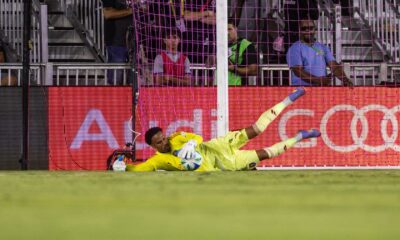
 Orlando City2 weeks ago
Orlando City2 weeks agoOrlando City vs. Inter Miami CF: Player Grades and Man of the Match
-
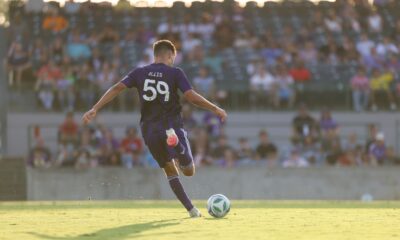
 Orlando City B2 weeks ago
Orlando City B2 weeks agoOrlando City B vs. Inter Miami II: Final Score 3-0 as Young Lions Dominate Herons At Home
-
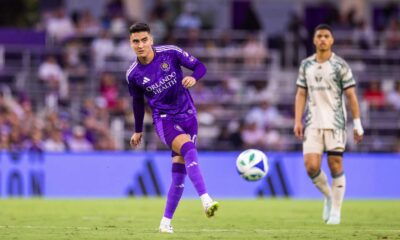
 Orlando City1 week ago
Orlando City1 week agoOrlando City vs. Portland Timbers: Final Score 1-0 as Lions Tie Club-Record 12-Game Unbeaten Streak


